Google has recently announced that Google Instant Mobile is now available “globally”. This means that the tool is released for all countries that have Google Mobile access (there are several dozens of those) and supports almost thirty languages.
The product, similarly to Google Instant Mobile, is integrated into search features for any Android browser (built-in for Android OS 2.2 and up) , and features various algorithms that allow faster dynamic search results.
Although this release was expected (shortly after releasing Google Instant Mobile in English, the company had announced that international support is on its way) – nobody anticipated that this would happen so quickly. The roll-out took Google slightly over one month time – an incredible figure, considering the complexity of the product. Of course, this simply means that Google had been working on globalization of Google Instant Mobile simultaneously with the product itself. That is no wonder – Google had always emphasized the importance of international marketing and global support.
Telemarketing was never a part of Google business strategy. The idea was to spread the information, get recognizable and make the clients come to them, asking for services. That’s were the sales managers stepped in, offering a variety of products, bargain deals and impressing the customer.
However, according to latest news, this has recently changed. Several hundreds of telemarketers are employed by the company, their task being to sell Google Boost and Google Tags services to local businesses at several markets in the US.
It seems the Rubicon has been crossed and Google has now “recognized” that some niches and companies should be addressed directly rather than by advertising. The next question, which should be probably answered in few months time, is whether they will expand their own telemarketing group (reportedly currently measuring 300 employees) or try to purchase an established sales force.
After all, with Groupon denying “the 6 billion offer”, Google has some money to spare…
Everybody knows that since the introduction of the new Caffeine index, Google is able to update its site indexing within hours and even minutes. Long gone are the days when we were shown some outdated “caption” of the website content that turned out as no longer present on the page. Different was the case with images, as Google Image Search indexing was still lagging behind. It could take a month or so for the recently added image to appear in Google Image Search results.
It appears Google, in its efforts to produce real time results, is now addressing this “problem”. Several users, who are following Google image indexing closely, have reported a major improvement in this field, stating that the new images are being indexed more fluently, appearing in Google Image Search results with a delay of several days only. This is yet another proof that non-textual content is becoming more and more popular among users, making it essential for proper SEO.
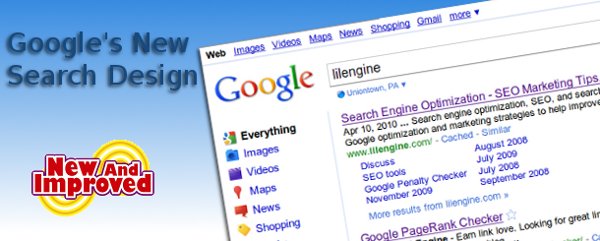
Most of us have noticed the new and improved Google search results pages by now. The biggest thing (in my opinion) is the new left hand column you get when you click the new “Show Options” link at the top of the results page. Whereas before if you wanted to search from a certain time frame, or make other refinements to the search, you had to go to the Advanced Search options page, now you can do a lot of those refinements right from your original results page.
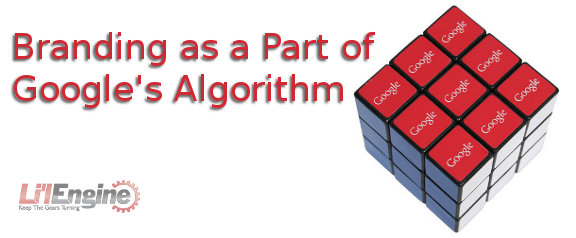
Just over a year ago, Google made some changes in their algorithm that appeared to be giving weight to “brands.” Now, “brand” is a short word that’s loaded with a lot of meaning. When this change took place, there were plenty of people running around in circles waving their arms in the air thinking that the big, rich corporations were going to dominate the search engine rankings and the whole purpose of organic search would be lost forever (the purpose being bringing users relevant results that could be from anyone, anywhere if they were right on target).
Fortunately, the passage of time has let people make some more considered analyses of that change. To get up to speed, let’s take a quick look at some of the ancient history (dating back to 2003) in search engine technology.

In December 2009 Google rolled out Personalized Search for users who were not signed in, and in over 40 languages. Personalized search has been around for awhile for signed in users who have web history enabled. This allows Google to fine-tune your search results based on past searches and on the sites you’ve clicked on in the past. This is how Google tries to optimize searches for you when your search terms have more than one meaning.
For example, Googling the term “blackberry” while signed in with web history on gets the results you see on the first screen shot. From my search history it is clear that I’m much more likely to be searching for information about the BlackBerry PDA than about the actual fruit. On the other hand, my mom, who does a lot of baking and jam-making, would probably end up with search results about the fruit rather than about the electronic device, based on her history of looking up recipes.

So now that personalized search is on offer for signed out users, exactly what does that mean?
It means that personalized search can use an anonymous cookie on your browser to base your search results on 180 days of search activity linked to this cookie. This is completely separate and apart from your Web History and your Google account. When you have the option of personalized results while signed out, you will see a link that says View Customizations in the top right corner of the results page, as you can see in the second screen shot. When you click on it, you can see how the results are customized and, if you want, you can turn off this type of customization, as you can see in the third screen shot.
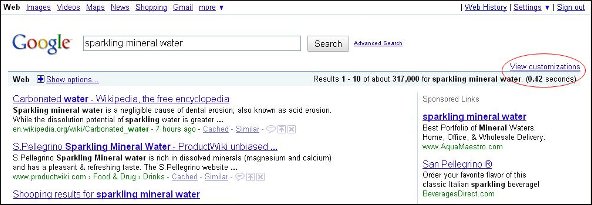
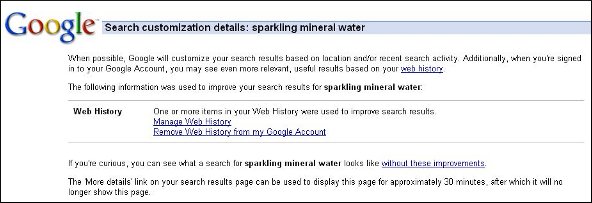
Now, there are obviously computers where lots of different people search, so the browser cookie might be influenced by multiple people’s search activity. To protect the privacy of the non-signed-in users, you can’t actually view the specific search activity upon which the signed-out personalized search is based. Plus, you can turn off personalized search settings for signed-out personalized search altogether if you want.
As for signed-in personalized search, you can clear the history upon which your personalized results are based at any time to protect your privacy. That way, if you stay signed in and someone else wants to know what you’ve been searching on, they won’t be able to do it through your personalized search history. Of course they could still go through your web history, so if you’re concerned, you should use your browser to clear your web history.
If you’re a webmaster, you might be wondering whether personalized search, adopted on a massive scale, will affect your ability to reach the people you want to visit your website. The answer, unsatisfactory as it may be, is “Yes, and no.”
Consider this. If a user searches for, say, “pith helmets,” and visits the top result and the last two results on the first page of listings. Then those three websites will be added into the person’s personalized search data. Next time the user decides to do a search for “pith helmets” then those two sites from the bottom of the first page of results will rank higher than they would in an organic, starting from scratch search.
But what if the user finds another search result, say the 7th one on the new results page, and bookmarks it and goes there henceforth rather than searching for pith helmets anymore for the time being. But then, a few months later, he thinks that maybe there’s a better pith helmet out there so he does another search. But this time, the one he bookmarked shows up as the top result. What gives?
Even though that site didn’t do any special SEO, there it is, right at the top of our pith helmet-loving searcher. However, other searchers will find other pith helmet dealers at the top of their results pages.
So how do you, the webmaster, change your SEO strategy? Or do you need to change it? If you’re doing legitimate, white-hat ways of getting traffic to your site, then your site will be more likely to bubble to the top of the research results for personalized search. A first time searcher might find your site perched at No. 1 simply because he has already visited it a bunch of times through other routes. This is true even if your site wouldn’t be tops in an organic search.
There’s nothing really that you should change in terms of your SEO strategy. Keep doing the on-site SEO as you have been, and you’ll probably do fine. But there’s nothing wrong with using off-site SEO to build up your brand and keep your visitors happy. Again, it boils down to having great content that people will find compelling and that will make them want to come back. This helps you whether the game is organic search or personalized search.
The takeaway is this: Google personalized search isn’t so much revolutionary as evolutionary. It’s not going to take all the search engine results and shuffle them massively. It may mean that sites that focus on the mechanics of SEO without focusing on great content could lose some ranking, but even that seems unlikely. Personalized search will change things up a little on an individual basis, but it by no means throws out the concept of organic search results based on SEO.

On Jan 27, Google promoted its social searching algorithm from the laboratory to “beta,” which means it’s now a regular search option. Reactions so far are mixed. Social searching has been praised by those who care what their friends on Twitter think of the new iPad, and criticized by those who wonder how anyone could care what their Twitter friends thinks of the iPad.
To partake of this new morsel on Google’s search buffet, you need to sign into your Google account and update your Google profile to include links to your accounts on social sites like Twitter and Facebook. But the Facebook link is a little deceptive. The only thing Google can index from Facebook are the public parts of people’s profiles. There isn’t a way for Facebook users to make their status updates available to the entire web.
So Google won’t be searching it to see what relevant things you have to say about a topic one of your Facebook friends has researched as of now. But if there is something relevant in the public part of your Facebook profile, it can use that. Somewhat ironically, FriendFeed, which is now owned by Facebook, is geared toward public information sharing, so if you are on FriendFeed and modify your Google profile to reflect this, that content will eventually become available.
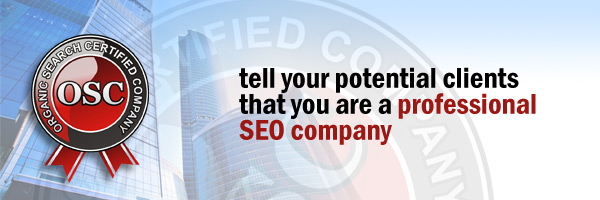
Lil Engine, an established resource of information on SEO and internet marketing, is excited to release OSC, Organic Search Certification, as a way to verify and recommend professional SEO companies.
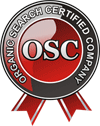 January 27, 2010 Winston-Salem, NC Furthering their ongoing effort to provide useful information and tools to site owners, Lil Engine now offers a certification for SEO Companies. OSC, which stands for Organic Search Certified, is a vetting process to verify the professionalism and quality of a company’s SEO techniques. Unfortunately, in the SEO industry there are a significant number of businesses that either knowingly or unknowingly are not performing quality SEO work. Concerns when choosing an SEO company range from whether or not they can achieve the results you need at the price they quote, or worse that they will engage in ‘black hat’ SEO tactics to achieve short term results that can often lead to a negative outcome in the long term . The challenge in choosing a reputable search engine optimization company is compounded by the fact that many are required to keep their client rosters confidential, making it difficult to publicize case studies and references.
January 27, 2010 Winston-Salem, NC Furthering their ongoing effort to provide useful information and tools to site owners, Lil Engine now offers a certification for SEO Companies. OSC, which stands for Organic Search Certified, is a vetting process to verify the professionalism and quality of a company’s SEO techniques. Unfortunately, in the SEO industry there are a significant number of businesses that either knowingly or unknowingly are not performing quality SEO work. Concerns when choosing an SEO company range from whether or not they can achieve the results you need at the price they quote, or worse that they will engage in ‘black hat’ SEO tactics to achieve short term results that can often lead to a negative outcome in the long term . The challenge in choosing a reputable search engine optimization company is compounded by the fact that many are required to keep their client rosters confidential, making it difficult to publicize case studies and references.
An OSC certified company has been independently analyzed and examined to provide an additional level of reassurance that the company offers value, quality, and ethics. In order to receive Organic Search Certification from Lil Engine, top SEO companies must pass a thorough company analysis including complete on-site and off-site examination of client referrals. OSC companies have:
SEO companies benefit from the certification by being given a company listing on Lil Engine, and by being able to display a verifiable banner in their own marketing materials. A company can apply for certification at http://www.webmoves.net/blog//seo-certification-evaluation-criteria/.
Contact:
Jen Thames
admin@lilengine.com
Lil Engine is a free comprehensive resource for webmasters and site owners sharing internet marketing information. Offerings include useful SEO tools, an SEO blog, a database of expert guides, forum, and directory.
Watch the stream live from the FTC 2 day workshop titled ‘ How will journalism survive the internet age? ‘ from Washington DC. Questions will be taken from @ftcnews during the Q & A session.
(more…)

News Corp Vs Google
An epic battle is brewing between Rupert Murdoch’s News Corporation and Google, as early as next month we could see News Corp controlled websites disappear from Google’s search results. It all started when Google began to index News Corp websites such as the Wall Street Journal / Fox news and returns to the minute results in Google News Search.
There has been a lot of commentary and discussion between the News Corp supporters and Google supporters, the case has been made by News Corp that Google is stealing content from their websites and basically not paying them for it, Google has not provided an effective business model for these websites to benefit from having their content on Google News.
What has baffled a lot of people is, why doesn’t News Corp simply block access to its websites from Google? Danny Sullivan of SearchEngineland describes in this great post.
Any webmaster worth a decent salary should know how to implement robot.txt and rel=noindex, I can not believe a large corporation like News Corp can’t just set this up. The reason? because News Corp doesn’t want to loose out on the massive free traffic from Google!
(more…)